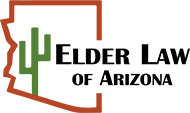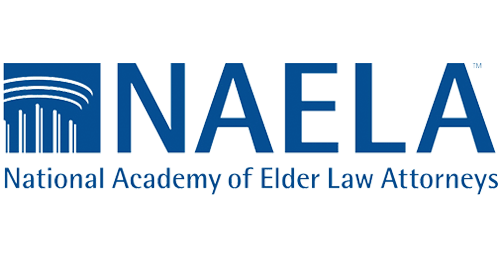
Why Add a Joint Owner?
Why is it a common practice to add adult children as joint owners on bank accounts?
- Bill Pay: Most often their goal is to make it convenient for their children to help them pay their bills. By being a joint owner, the child can write checks or send payment from their parents’ accounts.
- Estate Planning: They may wish to leave an inheritance to that child. On the death of one joint owner, the surviving owner becomes the sole owner of the bank account.
- Medicaid Asset Protection: Many people mistakenly believe that if they add a joint owner to an account, the “State” (i.e., Medicaid/ALTCS) won’t count the funds against their eligibility. This is false—Medicaid assumes a jointly held asset is 100% property of the Medicaid recipient unless he/she can prove the other owner contributed all or a portion of the funds.

Why Not Add a Joint Owner?
What consequences of the elderly adding their adult children as joint owners of their bank accounts?
- Creditors: If two people own the same account, they own the same account, for better or worse. The funds in jointly-held accounts are subject to collection by creditors of either owner, such as:
- High medical bills due to a catastrophic illness,
- Liability for rear-ending another vehicle,
- Bankruptcy,
- Divorce, and
- Debt-collection.
- Estate planning: Maybe the elderly person added a joint owner for convenience, but did not understand the impact joint-ownership has on their estate planning. They may have more than one intended beneficiary. However, the surviving owner becomes the sole owner, despite the terms of the deceased owner’s will or trust. And, what if the adult child should predecease the elderly parent? With no back up plan in place, the accounts may wind up in probate with unintended beneficiaries.
- Theft: This risk is more obvious. Unfortunately, it happens too often, usually by those closest to the elderly person. “Theft” is a strong word. However, if it is not for your direct benefit, what else do you call using your funds without your consent? Still, it is not theft if you make your child a joint owner—your money is their money. In your perspective, it may be just for convenience; in your joint owner’s perspective, it may be an early inheritance. I have seen too many sad situations, where there is no recourse (police, courts, etc.) because the elderly person opened the door for their joint owner to legally do whatever they wanted with their funds without consulting them. It may be easy for the co-owner to commingle expenses, or worse, just take the money.
- Not Easy to Undo: Once you add a joint owner to an account, you need their cooperation to remove them as joint owner, even if it was originally your account and your funds.
- Long Term Care/Medicaid(ALTCS): Most people do not appreciate how expensive long term care is until actually faced with that situation. Even if the withdrawals by the joint owner are insignificant, they add up quickly and deplete your funds. Too often the child with the best intentions to take care of Dad the rest of his life eventually can’t handle him alone. Dad may pay the price when he can’t afford his care and is penalized when he applies for Medicaid (ALTCS) long term care assistance.
Better Alternatives to Joint Account Ownership?

- Signing Authority: Maybe you name your child as just a signer on an account, not an owner. Then it is not his/her money and less at risk.
- Power of Attorney: Better yet, use a Power of Attorney to give your child broader authority to not only help you pay bills, but solve problems, such as why you were over-charged for something, whether your health insurance covers a particular treatment, or help you take your required minimum distribution from your IRA before the end of the year. They can help you sell your property if you are downsizing or moving into a care facility. They can communicate with your doctors to help you understand their recommendations. The list of benefits of a Power of Attorney goes on and on. Your money is still your money—they are just your helper, and cannot legally take your money for their own benefit without your express permission.
- Payable on Death Beneficiary: You can name a Payable on Death (POD) beneficiary on most accounts or assets if you are concerned about avoiding probate.
- Will or Trust: Better than just one POD beneficiary to ensure you have a back up plan, use a will or trust instead. In fact, a living trust may be one of the most effective options for seamless, ongoing management of your assets on your behalf, in the event of your death or incapacity. It combines the benefits of all of the other alternatives named above (signor authority, death beneficiary designations, and Power of Attorney), during your life or death, in one document. And, banks are generally very receptive to trusts.
The bank officer is not a lawyer and is not always aware of the negative side effects of joint ownership. Please consult an attorney before you add your children, relatives, or friends as joint owners of your accounts, investments, or property.
This just highlights the importance of consulting elder law attorneys for even seemingly simple decisions, such as addition a joint owner on a bank account. Not sure if your “small question” is worth reviewing with an attorney? Just call us and we will give you an honest answer if we think we can help. The advice may be worth every penny to have peace of mind and avoid problems it may cause you and your loved ones.





